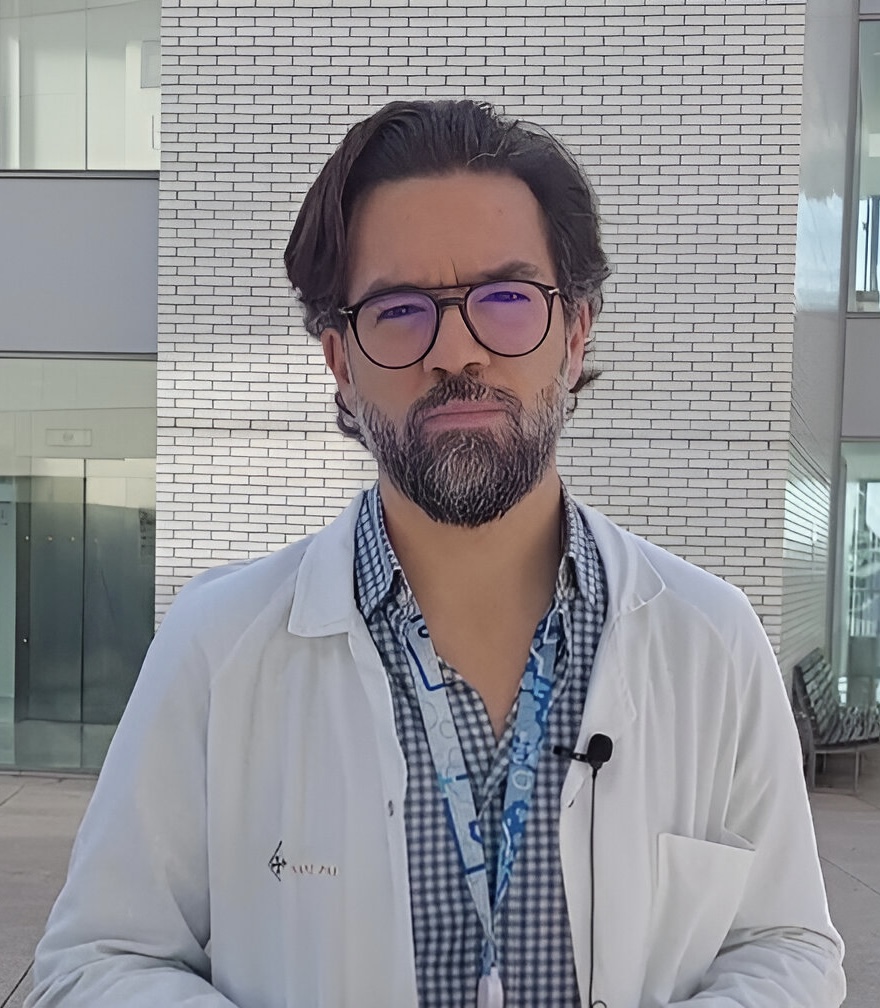

The TRAIL research group (Thoracic Surgery Research and Innovation in Lung Cancer) aims to promote research and innovation in the field of thoracic surgery and lung cancer. Integrated within the Sant Pau Biomedical Research Institute, TRAIL was created with the commitment to generate high-quality knowledge and effectively transfer it into clinical practice, with a direct impact on improving patient outcomes and quality of life.
The group is composed of professionals with extensive clinical and research experience in minimally invasive surgery, robotic surgery, and pioneering early diagnosis programs, who join forces to develop multidisciplinary, translational, and innovative research. TRAIL’s mission is to establish itself as a reference in thoracic oncology, contributing to scientific progress, the training of new professionals, and the establishment of national and international collaborations.
Translational research and biomarkers, to integrate molecular and clinical data and advance toward more personalized medicine.
Despite the progress achieved, TRAIL identifies several challenges that guide its research activity and shape future priorities:
Consolidating screening programs at the national level, ensuring their viability and integration within the healthcare system.
Transferring surgical innovation into clinical practice in a safe and equitable way, overcoming technological, training, and resource barriers.
Improving risk stratification in lung cancer patients by combining biomarkers, advanced imaging, and clinical criteria.
Reducing variability in surgical and perioperative outcomes by establishing standardized protocols and continuous improvement models.
Strengthening multidisciplinary and inter-institutional collaboration to promote more robust research with greater social impact.
Training new generations of professionals in biomedical research and thoracic surgery, ensuring the continuity of scientific and clinical progress.
The TRAIL research group (Thoracic Surgery Research and Innovation in Lung Cancer) aims to promote research and innovation in the field of thoracic surgery and lung cancer. Integrated within the Sant Pau Biomedical Research Institute, TRAIL was created with the commitment to generate high-quality knowledge and effectively transfer it into clinical practice, with a direct impact on improving patient outcomes and quality of life.
The group is composed of professionals with extensive clinical and research experience in minimally invasive surgery, robotic surgery, and pioneering early diagnosis programs, who join forces to develop multidisciplinary, translational, and innovative research. TRAIL’s mission is to establish itself as a reference in thoracic oncology, contributing to scientific progress, the training of new professionals, and the establishment of national and international collaborations.
Translational research and biomarkers, to integrate molecular and clinical data and advance toward more personalized medicine.
Despite the progress achieved, TRAIL identifies several challenges that guide its research activity and shape future priorities:
Consolidating screening programs at the national level, ensuring their viability and integration within the healthcare system.
Transferring surgical innovation into clinical practice in a safe and equitable way, overcoming technological, training, and resource barriers.
Improving risk stratification in lung cancer patients by combining biomarkers, advanced imaging, and clinical criteria.
Reducing variability in surgical and perioperative outcomes by establishing standardized protocols and continuous improvement models.
Strengthening multidisciplinary and inter-institutional collaboration to promote more robust research with greater social impact.
Training new generations of professionals in biomedical research and thoracic surgery, ensuring the continuity of scientific and clinical progress.

TRUJILLO-REYES, JUAN CARLOS FGS
jtrujillo@santpau.cat
Belda Sanchis, Jose FGS
Hernandez Ferrandez, Jorge FGS
Martinez Tellez, Elisabet FGS
Planas Canovas, Georgina FGS